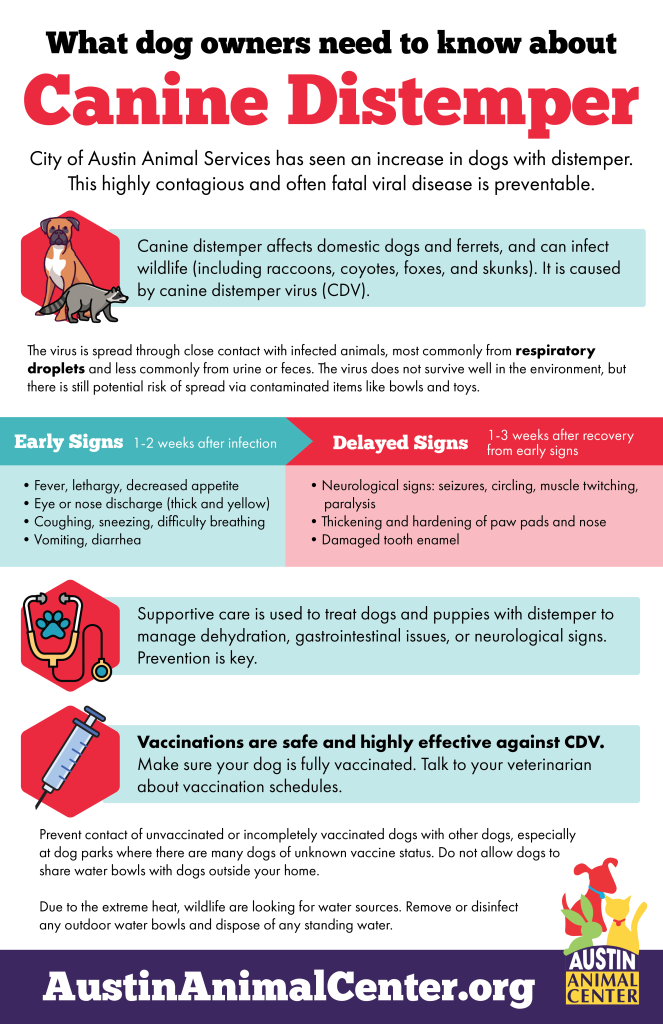Rabies
Top 5 animals that can carry rabies
- Bats
- Skunks
- Coyotes
- Foxes
- Raccoons
Preventing Rabies
- Vaccinate your dogs and cats
- Restrain your pets; do not allow them to roam freely in public
- Avoid contact with wild animals and unknown dogs and cats
- Do not touch sick or injured animals
- If your pet is bitten, scratched or in a fight with any animal, call 311.
Animal bites and scratches
If you are bitten or scratched by any kind of animal:
- wash the wound well with lots of soap and water
- call your doctor right away
- call 311
You may need to get rabies or other shots.
If your pet is bitten, scratched or in a fight with any animal, you must call 311.
Be sure to get the name and phone number of the owner of any pet that bites you or your pet.
Recognizing Rabies
First symptoms of rabies include
- Change in personality, depression
- Fever and loss of appetite
Advance signs progress within days to nervous system abnormalities such as
- Abnormal behavior, aggression, and/or self-mutilation
- Dropped jaw, tongue incoordination, difficulty swallowing, excessive salivation
- Wobbly, weakness, paralysis, seizures
Bats
Bat season is March through November. The Austin Animal Center and the Austin/Travis County Health Department want to remind the public of ways to minimize the danger of exposure to rabid bats in the Austin/Travis County community.
As a general reminder, never handle a bat alive or dead with bare hands.
More information can be found on this informational flyer, here.
Canine Distemper
Canine distemper is a virus affecting unvaccinated dogs. It is most often found in southern states, like Texas. The virus can impact all systems in the body, but typically starts with upper respiratory signs. The good news is that the distemper vaccine is very effective at preventing this virus
Common Symptoms:
- Cough/chest congestion, snotty nose/nasal discharge, nasal congestion, pneumonia
- Not eating/loss of interest in food, vomiting
- Extreme lethargy or fatigue
- Diarrhea (sometimes bloody)
- Eye discharge/decreased tear production/squinting/crust around the eyes
- Fever
- Neurologic signs such as seizures or twitching
Visit your vet immediately if you observe any of these symptoms in your dog.
Prevention
The distemper vaccine comes in many forms (DHPP/DAPP/DHLPP) and is considered very effective. The vaccine usually provides partial immunity immediately, and full immunity in 3 days. As long as your resident dog(s) are healthy adults (over 2 years old) and have received multiple distemper vaccines, including a recent one within the past 3 years, they should have adequate protection against CDV.
Limit contact of unvaccinated or incompletely vaccinated dogs with other dogs, especially at dog parks where there are many dogs of unknown vaccine status.
Due to the extreme heat, wildlife are desperate for water. Disinfect any outdoor water bowls and remove access to standing water.
Diagnosis & Treatment
Diagnosis of CDV is based on symptoms and confirmed with PCR testing. The list of possible symptoms for CDV is long because it can attack multiple parts of the body, even at the same time. It is often difficult to predict how symptoms will present, but once the dog starts to show recovery, symptoms usually continue to disappear rather than get worse again.
CDV is a virus which has no cure. Instead, veterinarians do everything we can to treat the symptoms until the virus passes.

Canine Distemper Flyer (PDF)


